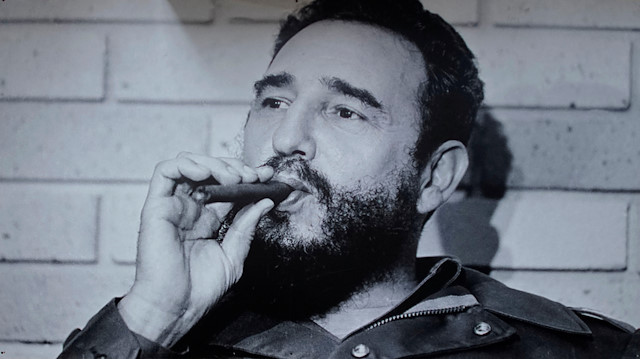Fidel made a martyr of him in Cuba, urging all Cuban children to be like Che.
Fidel, Raul, Guevara, Huber Matos, Camilo Cienfuegos and a handful of other rebels arrived in Cuba in Granma, a boat purchased in Miami through donations of Cuban exiles who opposed Batista’s tyranny.
Fidel masterfully used radio channel Radio Rebelde launched in 1958 to communicate with the world and to convince Cubans to join the revolutionary cause.
At the helm of Cuba, he nationalized U.S.-owned farms and companies in line with his promise to hundreds of thousands of Cubans at an historic speech in Havana in 1959 and later began to court the Soviet Union to sustain his socialist agenda.
Losing the puppet Batista government in Cuba and defied by the cadre of Fidel, Washington imposed economic sanctions and launched a failed coup attempt in 1961 through Cuban exiles at the Bay of Pigs.
Fidel responded to threats by intensifying his anti-U.S. stance and allowing the Soviet Union to station nuclear missiles in Cuba, a risky move that almost resulted in a nuclear war. So began the “daggers drawn” feud between Cuba and the U.S.
Cuba benefited from significant amounts of Soviet aid, allowing the country to build well-regarded health and education systems.
But opponents of Fidel claimed the centrally controlled economy performed poorly and Cubans had no real freedom. He was also criticized for imprisoning and killing thousands of dissidents, including some of his revolutionary comrades like Cienfuegos and Matos during the consolidation period of the revolution.
After the collapse of the Soviet Union in 1991, everyone thought Cuba was next in line. But in the words of Cuba’s ambassador to Turkey, Luis Alberto Amaros Nunez, the Caribbean nation survived “because Cuba was socialist in a Cuban way and never became a satellite state for the Soviets.”
“We never deny Soviet help in the survival of the revolution, but Cuba has always been an independent country,” he told Anadolu Agency.
Regarding rumors about the fate of Fidel and Che’s friendship, Amaros said “they were always good friends who supported each other’s cause till the end.”



